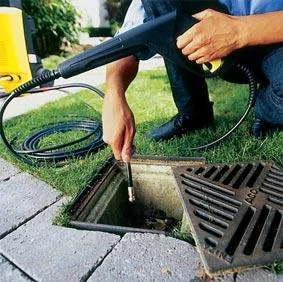When you use a drain cleaner to unclog clogged wastewater or sewer pipe, you’re basically using a chemical product to clear out the clogging. This chemical product may also refer to a mechanical device that you can use to clean your pipes, such as a plumber’s snake or toilet plunger. But before you use a chemical drain cleaner, make sure you understand what it is for. Here are some basic examples.

Plumber has a professional drain cleaning service to handle clogged pipes safely. The first step in drain cleaning is assessing the clog and its cause. A plumber can determine the root of the blockage by using a video inspection. Once the plumber has identified the exact cause of the blockage, he or she can then start clearing the blockage. The process of drain cleaning can take anywhere from a few hours to a few days, depending on the clog and the plumbing conditions.
Other than using a professional drain cleaning service, you can also try using a homemade drain cleaner. Various materials can be combined to make a drain cleaner. For instance, baking soda and white vinegar can be used to clear your pipes. Baking soda is a base substance that is called sodium bicarbonate, while vinegar is a mild acetic acid. These two ingredients combine to form a fizzy bubbling action that can break up clogging and get water flowing again.
When using a drain cleaner, it is best to use a professional as they will be able to do the job faster and more thoroughly than a do-it-yourselfer. Although this will be more expensive in the short term, it will pay off in the long run as it will extend the life of your drain pipes and save you money on replacement costs. But if you are unsure about the safety of using a chemical drain cleaner, you can always use the services of a professional plumber.
There are a few things you should never put in a drain. The biggest problem is grease. It can stick to the pipes and make them more prone to clogging. A good way to solve this problem is to get a drain cleaner. If you can’t afford this, you can make your own. It will cost you a little more than a store-bought drain cleaner, but it will last a lot longer and will prevent future clogs.
A chemical drain cleaner can be a good solution for a clogged pipe. Generally, it will break up the clog and restore normal water flow to the pipe. But the downside of this method is that it leaves remnants of past clogs, which stick to the pipes and increase the chances of clogging. If you don’t have the time to do this, consider hiring a professional drain cleaner. If you don’t have time to perform the cleaning yourself, you can still call a service provider.
You can also make your own drain cleaner at home. A simple mixture of baking soda and white vinegar is a good solution for clearing a clogged drain. Both these substances are alkaline and acidic and react with one another to create a bubbling action. The carbon dioxide in the vinegar will loosen up the clogged pipes and prevent odors from developing in the future. So, you should never use these materials to clear your drain.
You can also make a homemade drain cleaner by using boiling water, baking soda, and white vinegar. Both of these substances are biodegradable and contain no chemicals. Besides these, you can also use a hose and a plunger. However, remember to avoid using household chemicals to clean your drain. You could end up contaminating your water and the air in your home. If you do decide to use a hose, you should also keep it away from your kids.
You can also use a chemical drain cleaner, but it’s recommended that you hire a professional plumber to do the job for you. They can clean a drain much more thoroughly and efficiently than you can, and they can also help you avoid the inconvenience of using a chemical cleaner. These chemical cleaners can damage the pipes of your home, but a plumber can get rid of them in a matter of minutes. In addition to a chemical-free solution, a drain cleaning solution is biodegradable and will help preserve the water quality in your home.
